Life of a Field Service Equipment Engineer in the USA
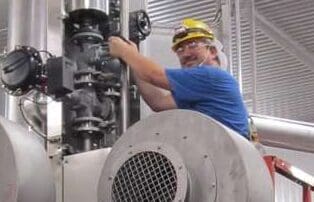

Jonathan Haymans started his career in the Navy and then moved into the mechanical and industrial engineering industry. He is currently working for Royal Kaak as a Field Service Equipment Engineer.
Royal Kaak are based in Terborg in the Netherlands. They supply equipment to bakeries all around the world.
A US Navy veteran who installs and services baking production line equipment for Kaak North America
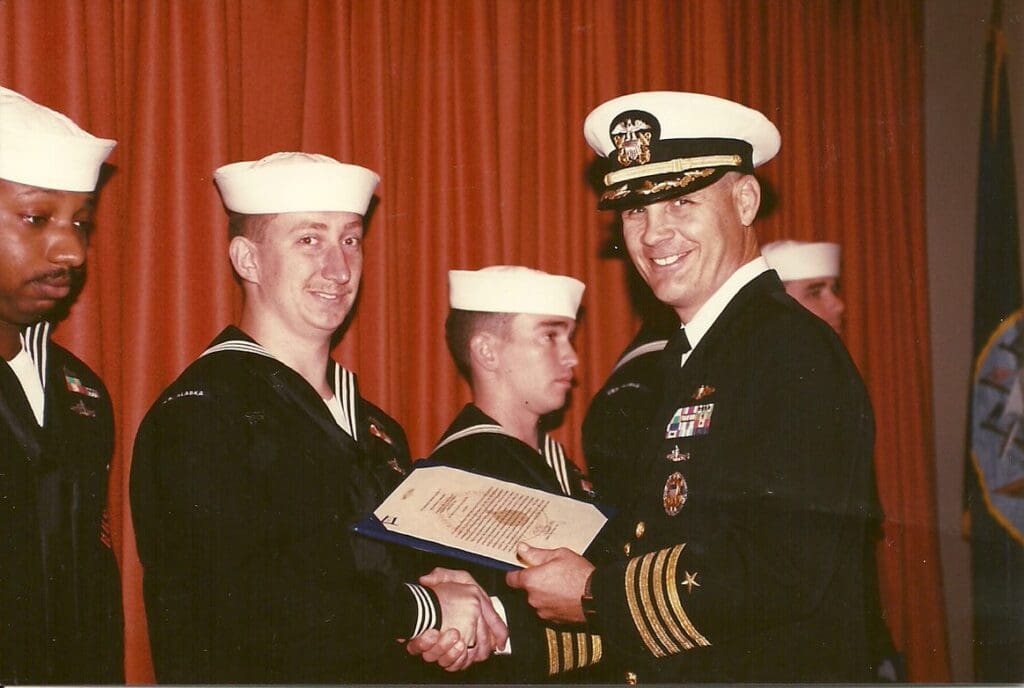

Path to Field Engineering
You started your working life in the Navy. Were you interested in the Navy from being a child? Was there a family member who was an influence?
I was indeed interested in the Navy as a child. I had two uncles who had served in the Navy and spoke well of their experiences and training.
The biggest influence in my choice between the Air Force or the Navy was a recruiting letter I received from the Navy. The letter stated that I would be a good candidate for their Nuclear Power Propulsion program based on my ASVAB scores (Armed Services Vocational Aptitude Battery).
I thought WOW! Nuclear power! I was hooked.
During your time serving in the Navy, has there been a particular person who has inspired you?
I would not say that there was any one person that inspired me. Rather it was the overall experience in serving on a nuclear-powered submarine and the crew that manned the sub. It was a family of highly knowledgeable people that treated each other with respect and honour. We trusted each other, literally, with our lives.
Engineering roles in the navy
Could you give an outline of your role in the Navy?
I served in multiple roles in the Navy, while serving on the submarine and later at Trident Training Facility.
I completed the Naval nuclear power training program, where I trained as an electrician first. After that, I trained as a nuclear power plant operator.
After this, I served on the USS Alaska SSBN 732. This is a Trident class missile boat, based in Washington state.
Over the 5.5 years I was stationed on board, I was responsible for nuclear power plant operations in 4 different “watches”.
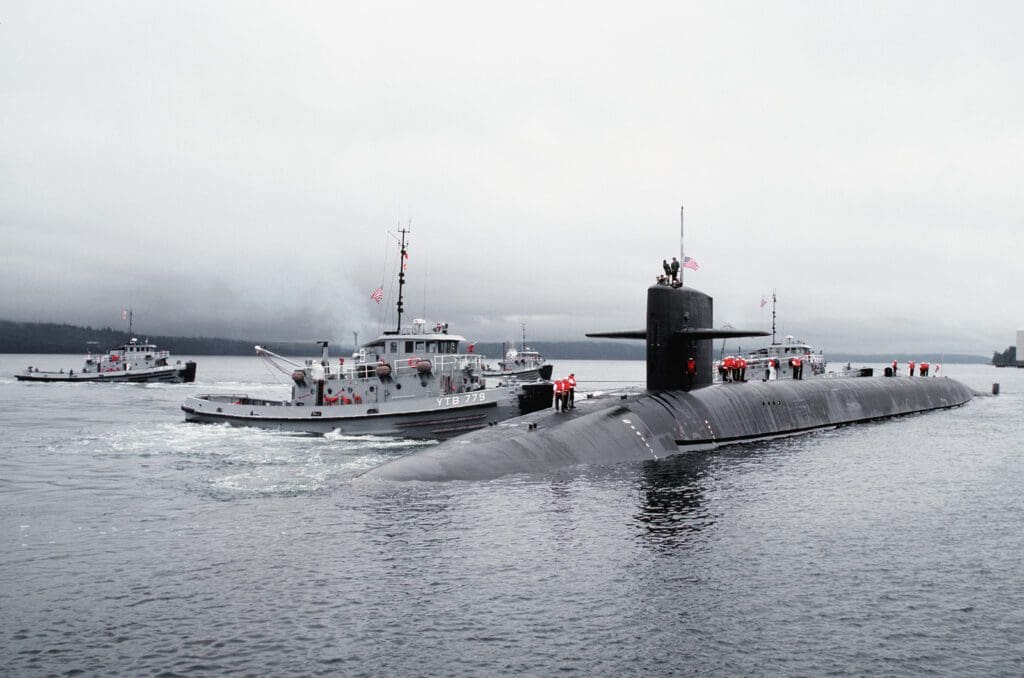

Watches
Roving electrician watch that monitored the operation of all electrical equipment in the engine room.
Throttleman watch that operated the large steam turbines that propelled the sub through the water and operated related support equipment from the same control panel.
Electrical operator watch that monitored and controlled the electrical power generation turbines, back up motor generators, a large lead acid battery bank, and power distribution system.
Later as an Engineering watch supervisor. This role is the lead enlisted operations supervisor in charge of the entire engine room of the sub. The purpose is supporting the Engineering officer of the watch to control the nuclear power plant, the propulsion system and the electrical power generation system.
Training and education
The schooling we received was excellent in providing theory and methods for troubleshooting problems. We were always responsible for improving our level of knowledge on electrical equipment.
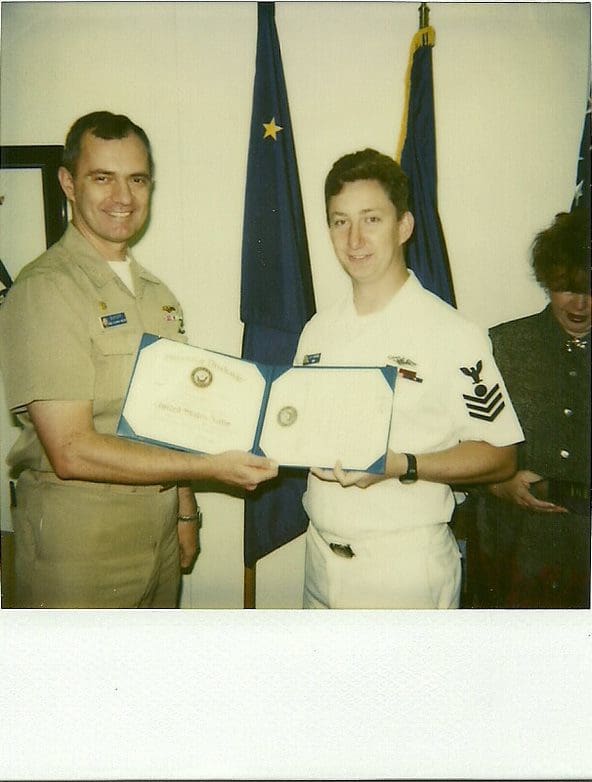

Electrician at sea
In the role of electrician, I performed preventative maintenance on all electrical equipment throughout the submarine.
The role:
Perform repairs of equipment as needed while at sea. Supported only by the parts available on board the ship.
Adapt to situations requiring the repair of equipment in an expedient manner while at sea. The repairs would normally be performed in port by port-based shop personnel. When at sea, that option is not available. These situations would require creative thinking to determine how to affect repairs without support.
Research The cause of failures sometimes would not be easy to determine and would require extensive research of the onboard technical manuals and materials.
Maintained a comprehensive preventative maintenance system for the engine room and for electrical equipment related to the nuclear power plant.
Maintained a repair parts inventory needed for basic maintenance and equipment repair while at sea.
Performed the role of a calibration specialist, maintaining calibrated testing equipment and performing actual calibrations of temperature testing, electrical testing equipment.
When we were in port, I always attended as many additional training courses as possible. These were on specialized equipment and additional maintenance techniques that were available.
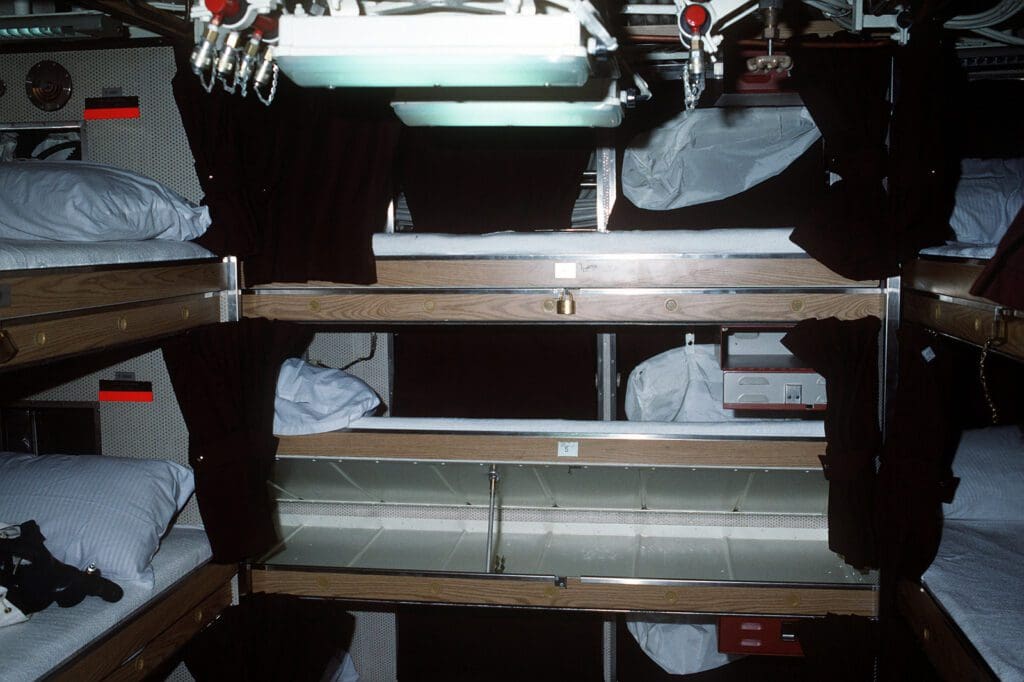

Power plant operations
I created and maintained a basic engineering qualifications program. This was used by the whole department to train the engineering personnel on all equipment in the engine room used for nuclear power plant operations, propulsion system and electrical power generation/distribution system. This was to facilitate a better understanding of integrated plant operations across divisions to improve the departments performance during annual Operational Reactor Safeguards Examinations/Inspections.
In addition, I maintained a training program for the senior supervisory personnel in the engineering department. This was used to maintain the knowledge and skills level of the senior enlisted and engineering officers. It was necessary to ensure the safe and effective operation of the engine room and therefore the ability of the ship to support its mission at 100% effectiveness.
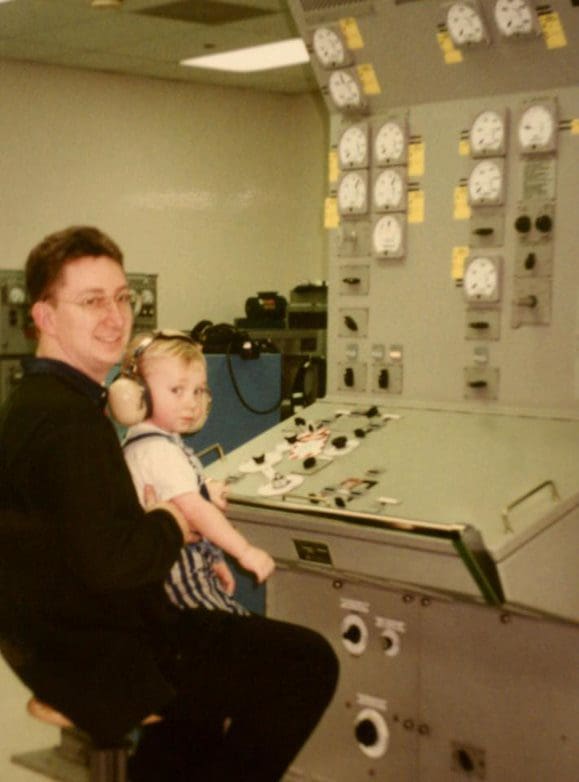

In the role of maintenance trainer:
Instructed adult students on topics such as electrical theory, specific machine operations and maintenance.
Maintained and improved instructor guides used for classroom instruction.
Maintained student records.
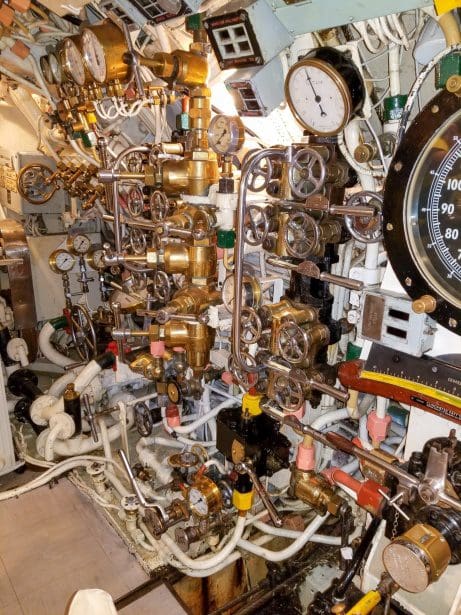

Leadership skills
Where did you gain most of your leadership skills?
I gained experience as the leading electrician in a division of 13 technicians, several of whom outranked me. The chief electrician wanted me to further develop the leadership skills I was showing.
Transferable skills taken to working as a field service equipment engineer
What were the skills which you took from your time in the Navy to working as a Field Service Engineer?
Hard skills
Preventative maintenance
Ability to carry out electrical repairs with limited resources
Use of digital multi-meters, oscilloscopes, calibration equipment.
Able to read electrical/pneumatic/hydraulic/mechanical prints
Basic hand tool use
Quality assurance and technical writing
Soft skills
Critical thinking
Work ethic
Motivating others
Effective communication
Ability to be flexible with regards to accepting any situation and rolling with it to get the job done
Ex Forces/Military people working as Field Service Equipment Engineers
There are a lot of ex forces/military people working as field engineers. Why do you think this is the case?
The role of a FSE (Field Service Engineer) can be very demanding at times. It requires:
extensive travel
a lot of hours
dedication to seeing a job through to the end despite the various and sometimes numerous obstacles
Most who served in the forces have served away and sometimes with limited resources.
Most of us have learned to work many hours as the need dictates in our previous role. So, working hard, and working smart are not new to us.
We are used to both working together as teams and separately as needed based on the individual jobs and the situation requires.
The military can also instil a strong work ethic, in that, other people are counting on you to do your job correctly and on time in order to complete their missions and safeguard their lives.
Attention to detail is also very well drilled into military personnel, and that is needed to make sure that the smallest detail is considered when getting a job done.
Typical day as a Field Service Equipment Engineer
What’s your typical day like?
No such thing.
If I’m working in a team, I meet with the other engineers. While we have some breakfast, we discuss:
the plan of attack for the day
any new information from the customer or from the engineering group that may have been relayed during the night.
After that I go to the site and discuss priorities and needs with customer project management.
Then, my day continues with:
Work on machine(s) installation.
Machine placement, assembly, wiring, piping, testing etc…
Document issues found and corrected. (These are used by engineering or QA to prevent recurrence of the same issue in future installations.)
Field phone calls from customer management onsite, from employer management, from other customers seeking assistance with machines.
Document times of personnel and how personnel are distributed on a site.
Document status of installation to report to project management.
At the end for the day, back at the hotel, I meet with the FSEs to discuss outstanding issues etc.
Then:
Have dinner.
Send out emails as needed.
Sleep, do it again the next day.
Or it could be a day full of teleconferences and remote meetings.
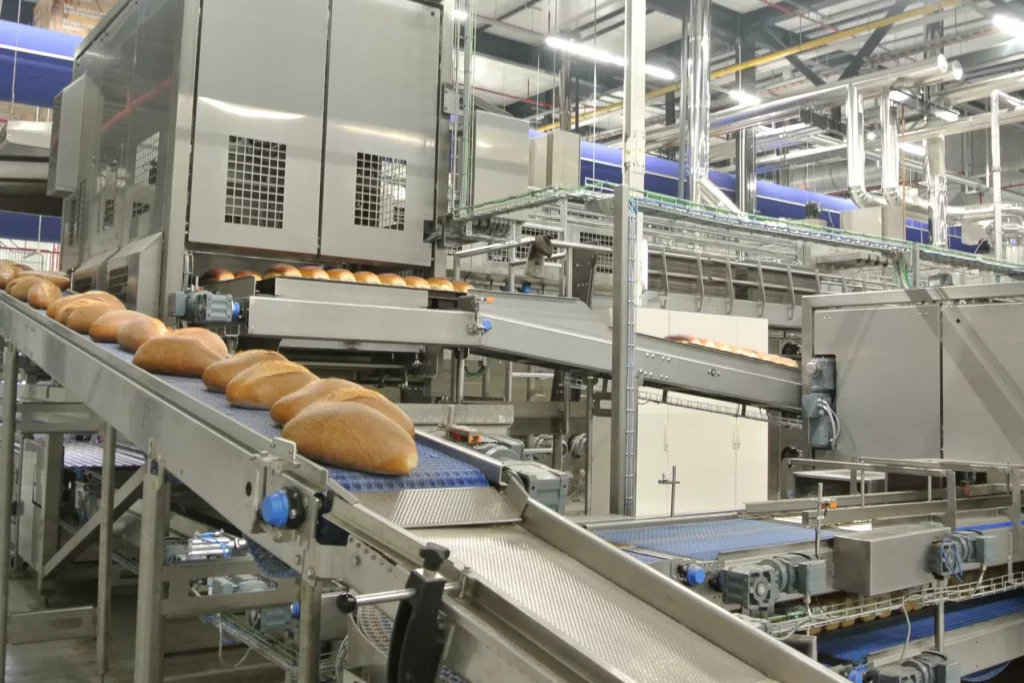

How much of your time is spent on site with customers and how much with admin and other tasks?
Roughly speaking, 70% of my time is with customers and about 30% on admin and other tasks.
Which other parts of the organisation give you support?
Support comes from:
Engineering department on technical issues
Parts department
Travel section
Applications group giving input on recipes and settings needed to achieve a customer’s goals
Types of equipment used as a Field Service Engineer
What are the types of equipment you service, maintain and install?
Industrial sized bakery equipment.
Bread dough mixers, dough dividers, dough extruders, dough sheeting machines, dough ball rounders, proofers, moulding tables, linear ovens, cooling towers, freezers, and various types of conveyors.
Is there a piece of equipment that you have serviced that seemed to have been designed without considering the field engineers who would maintain it?
There have been many machines in my career as an FSE that certainly gave the impression that engineering was not worried about the FSEs servicing it.
Generally, however, the consideration was given to being more friendly for the operator or to the day-to-day maintenance not performed by FSEs.
It has been exceedingly rare to run into some type of repair needed to be performed by an FSE that “couldn’t” be done, without exceptional effort.
As an FSE, it is my job to know how to work on a machine that most maintenance personnel would not want to have to repair.
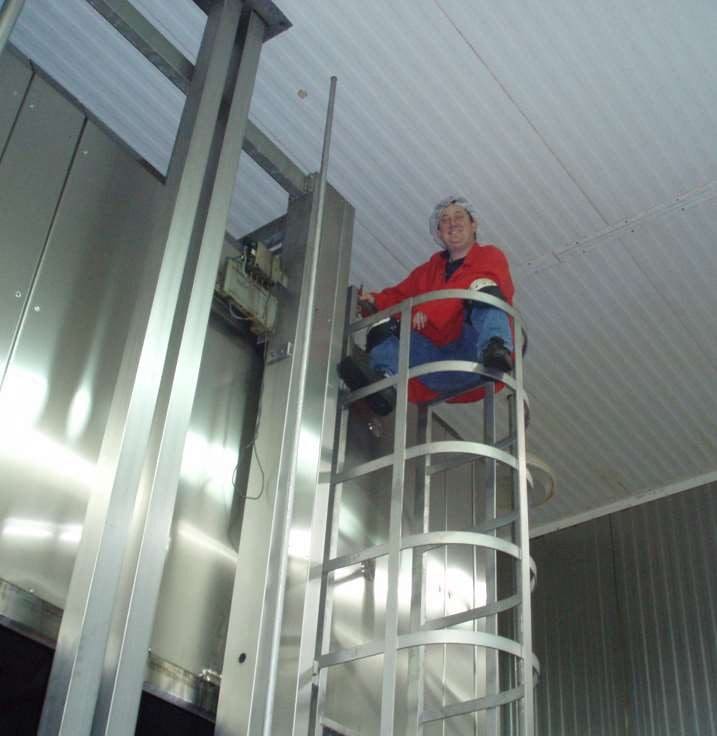

What do you think will be the biggest change in the equipment you work on in the next five years?
The continued integration of IoT will drive the controls changes that we will see for years to come. How to make use of them going forward and how to retro fit IoT into older machines not built with this functionality.
Most challenging part of the job as a Field Service Equipment Engineer
What do you find most challenging when you are working – technical side, people/customers or logistics (travel etc)?
The most challenging to me, meaning the most pain with the least reward is the travel aspect.
Technical challenges are something I enjoy.
Most challenging equipment job working in the field as an engineer
What has been your most challenging job in the field?
My most challenging job was leading, as a working supervisor, a total rebuild of an oven in the field. This included an entire controls system replacement from one model of Siemens PLC system to another model of Siemens. It required a lot of work:
the de-terming of all field devices
removal and replacement of all controls, including HMI’s, PLC’s, 5 remote I/O stations, associated I/O modules
replacement of:
many field devices and associated cabling
many motors and pumps
all cables between field devices/motors and controlling stations
the entire main electrical cabinet
all cable harnesses between main electrical cabinet and all controlling stations on machine.
At the same time, we were also changing out all normal wear items in the oven conveyor system (hundreds of individual items). These items included:
bearings
support rails
shafts
sprockets
bushings
drive chains
tensioners
numerous weld repairs.
Schedule of six days
We worked on the mechanical aspect required for the hydraulic raising and lowering of the “hood” normally controlled by the control system. This required the building of a temporary control box used to control the hydraulic pump and all associated hydraulic control valves. Followed by the manual operation of the lifting system of the 15-ton hood as required.
Engineering had requested that the project be broken into two separate jobs, one for electrical and one for mechanical/hydraulics.
This was all on a compressed schedule of six days, versus the nine suggested by the engineering department, in order to meet customer demands for production schedule.
We coordinated efforts with a local subcontract electrical company for the cable harness runs, new conduits and power supply connections.
All of this was complicated by the fact that power was not available until the last day just before lunch. This was due to some complications that the subcontractor encountered when making final connection of power to the new electrical cabinet.
Testing ran until close to midnight on the final day, with a concern that we might not make deadline.
Successful completion
We did get finished in time. The customer regional production manager expressed his gratitude at our completing the project in time despite his doubts.
Within a few weeks I heard from the same manager that he was very grateful for the repairs performed. The downtime on that machine had been drastically reduced as a result of the work we performed.
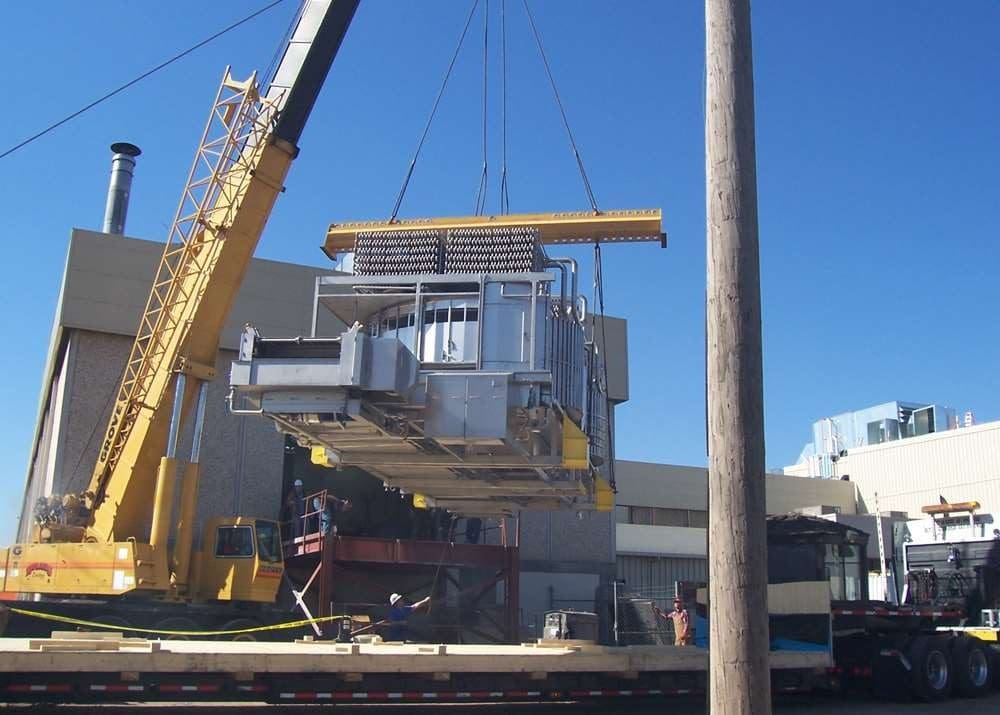

Switching a switch after a long drive as a field service equipment engineer
Have you ever arrived on site and found that it was much easier than you expected? For example, did you ever need to simply switch on a machine.
Yes. Three items come to mind.
First example
Once after discussing with customer via telephone about why his PLC couldn’t communicate with a remote IO and being told that all instructions had been followed. I drove the six hours to the customer site to find that a termination switch on a profibus plug had been put into the ON position mistakenly. I switched it to the OFF position and Voila! Machine up and running.
Second example
Another example is when a device would not turn from the HMI. I found that the local device had an ON/OFF switch that was in the Off position.
Third example
A customer called to discuss a loss of comms with a remote IO station intermittently. I explained that a profibus cable that had been damaged in the past, and documented in the last inspection report for replacement, was the most likely cause of the issue.
However, the customer insisted that this was not the issue.
So, I drove four hours to the customer site and walked with the manager to the machine with the issue reported. The machine was currently in production, and I showed the manager the damaged conduit. He still insisted that it was not the problem. So, I swatted the conduit with my hand to make it move. This caused a loss of comms with the remote IO and shut the machine down.
Though he was not pleased with my manner of presentation, he was happy with the fact that we now knew how to correct the issue. He placed a boundary tape around the area to prevent accidental bumping of the conduit. We replaced the offending cable that night after production.
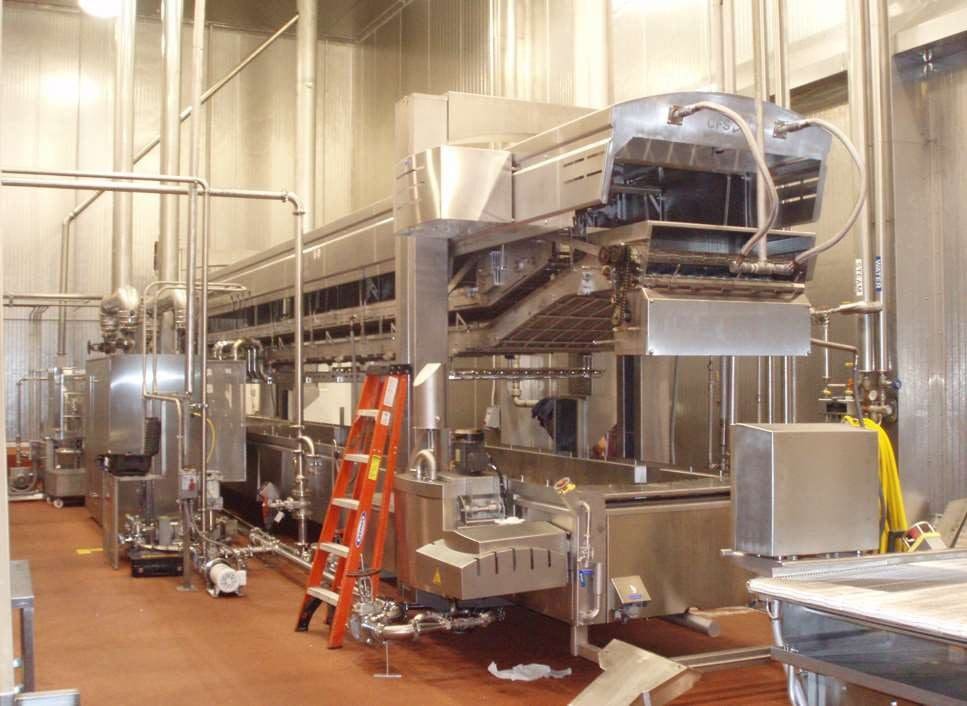

HACCP (Hazard awareness and critical control point)
Are there particular health and safety rules you need to follow in terms of hygiene (when on site)?
Customer sites generally follow HACCP (Hazard awareness and critical control point) guidelines.
Generally, this means the use of hair nets, beard nets, smocks of some sort, and in some places, booties or overshoes over work boots.
It also means washing hands:
going into the production area and between types of production areas.
after touching non-food safe areas, i.e. the floor or other obviously non-food safe surfaces or objects.
Making a winner as a field service equipment engineer
What makes the type of field service engineer who is tomorrow’s senior engineer?
Tomorrow’s senior engineer starts as the junior engineer of today. there are three main areas to focus on:
Understanding all the equipment
“Stick to it” attitude
Lifelong learning
Understanding all the service equipment as a field engineer
The FSE is not just working to make only their equipment run; but is also working to understand how their specific equipment fits into the customers production line. Understanding the products that the customer manufactures with their equipment allows the FSE to troubleshoot issues that transcend their specific machines. Issues that are related to all the details of how other steps in the production process affect the operations of their equipment.
On many occasions I have been called out to a location to determine what is wrong with an oven. Only to determine that some part of the process up-stream of the oven has changed, resulting in a changed appearance, or product temperature or consistency, etc…
“Stick to it” attitude
Another important factor is the “stick to it” attitude. Seeing a job through to completion, even if it means substituting components that are not OEM (Original Equipment Manufacturer). That requires a detailed understanding of:
the machine
how the specifications differ from the OEM component to the substitute component
the defective component(s)
Then the FSE needs to be able to explain the possible impacts the substitution may have on the machine’s operation to a manager, to a technician, and to the operator.
Lifelong learning
All of this is tied together by continued learning about our machines in more and more detail.
Continued learning of:
how the machine is used and in what environment
changes in control systems, hydraulic, pneumatic, electrical components that are being used or are available for use.
The continued education is typically OJT (on the job training) and not in a classroom environment. There are no formal classes on how each customer uses their machine in their production lines and therefore how it affects the operation, maintenance, and repair of our machines.
There are plenty of formal classes for control systems offered by OEMs. Explain to your supervisor how that makes you a better FSE so that they are willing to invest that time and money.
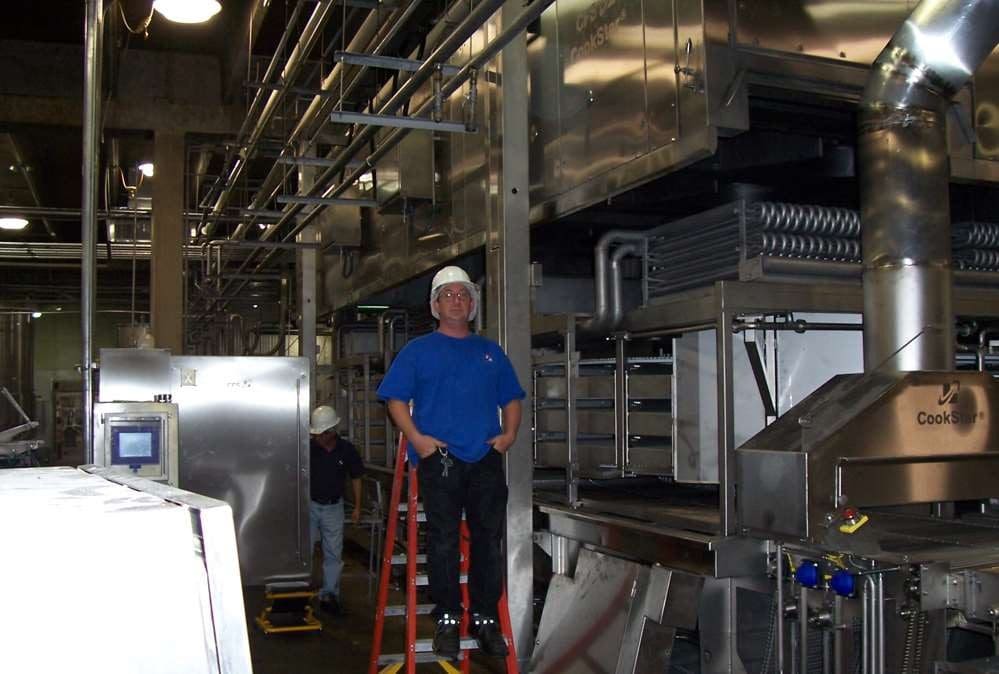

People and communication skills as a field service equipment engineer
How important are communication and people skills?
Always displaying a “can do” attitude makes a difference when working with customers and project management. People see that you are the “go to” person who shows a willingness to get things done for the customer.
The customer is not always right, this is where communication skills become extremely important.
You need to actively listen to the customers complaints about the machine(s) being discussed.
Always keep in mind that by the time the “issue” is described to you as the FSE, the description of the issue has likely changed as the information is passed from operator to technician to technician supervisor, to maintenance management…..
It is part of the FSE’s role to do some forensic detective work.
Going to the normal operations personnel and asking them the who/what/why/where/when questions. Operations personnel may not know how the machine works the way an FSE does, but they always have useful information to help better describe the actual issue.
Some information may at first seem useless, but, can sometimes be the key to opening the door to the actual problem. The operations personnel know the sounds, smells, sequences etc. etc… That information may not get passed upwards in the communications to a manager.
It is key to discuss with the customer’s maintenance technician to understand what they know of the issue as well as what steps they have taken to correct it.
Another important skill is to listen closely to the people to determine their actual level of knowledge. Their knowledge level will affect their interpretation of the symptoms seen and could send you in the wrong direction.
The “whys” and “hows”
After the actual problem is determined and corrected you need to follow up with all the layers of personnel to ensure that they fully understand what happened and how it can be prevented from occurring again. To do this ensure that your customer fully understands the “whys” and “hows”:
Why there is an issue now, how to do we correct the issue now?
Why did the issue come to exist in the first place?
How to prevent the issue from occurring again?
Documentation
Documentation is crucial and it should provide all the information related to a service call. This gives the customer, your employer and your fellow FSEs a reference for when a similar problem occurs in the future.
Remember that without the “Customer” there is no job. As FSEs we work for the customer and our employer. We are the ambassador between the customer and our employer. We are the face that the customer associates with our company.
Experience from working and academic knowledge
How key is experience from working compared with academic knowledge?
Academic knowledge is the foundation needed to build your experiences on. It gives you the background to enable you to understand the issue presented to you to solve.
In my case, I did not attend any formal schools other than the military technical schools.
The schools certainly did not teach me everything needed to function as an FSE.
Of course, many of the topics I was trained in are no longer used in my current role. Nuclear power plant operation is not a commonly needed background for a person that installs and maintains equipment.
However, it did give me a solid background of theoretical knowledge that is used to this day. These are:
Training in troubleshooting methods such as the seven-step process, or half-stepping, or differences and changes. All are tools used to diagnose issues.
Topics such as calculus, used for setting PID (proportional integral derivative) loops on control systems.
Electrical theory, to understand how a motor or transformer works, or what is causing an electrical noise issue.
Print reading, pneumatics, hydraulics etc.
Best way to learn
However, I believe that academic knowledge alone does not make a good FSE.
The Navy understands this and provides “incident reports” that are disseminated to its technicians in various roles to help the new technicians learn from the mistakes of others.
BUT, nothing sticks with you better than actually responding to a trouble call in a “machine down” situation. There can be a lot of pressure to restore a machine to service as quickly as possible.
You begin with investigating the issue reported by the customer. Then find the actual source of the problem. Correct the issue. Then fly out with your cape flapping behind you as you proceed to the next trouble call. The experiences gained in those situations, stick with you the best.
These experiences gained when working on various machines are critical to the FSEs rapidly diagnosing issues. An observant FSE builds a mental database of the equipment that they work on.
Note keeping and “how to” guides
Personally, I keep detailed notes while troubleshooting problems. This allows me to review what steps I have taken while troubleshooting an issue and what the resolution of the issue was.
The notes are later recorded in technical service reports or in “how to” guides that I create for my customers, my own use and share with other FSEs. These notes are a tool allowing me to sometimes “shortcut” the troubleshooting process. In one of those moments:
“I have seen this before, but don’t recall the details”
There are also many issues that can be diagnosed using the information provided by the customer, even when the information may not be complete or even totally accurate. That occurs when the customer makes a statement regarding an issue that triggers some of the experiential memory gained from your own experience.
Experience, learned or shared, will show that equipment has typical failure modes that you learn to recognise. Customers may only have one of a specific type of machine and therefore may not be able to identify the root cause of a problem. Your experiences and therefore expertise is a valuable resource to your customers and employers.
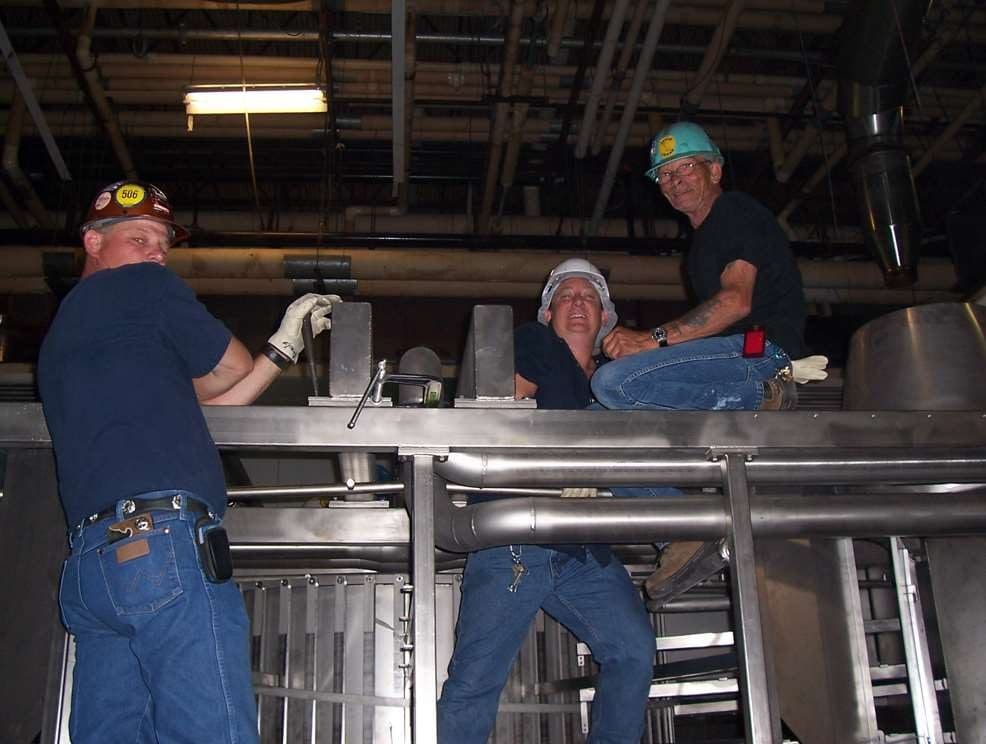

Ongoing Training as a Field Service Equipment Engineer
How important is ongoing training?
Ongoing training is a key “to keeping up with the times”.
OEM machines continually evolve to stay competitive. Therefore training from engineering/applications personnel keeps the FSE up to date with the newest changes to the machinery they service. OEMs need to actively maintain their FSEs knowledge of changes to the equipment. Some OEMs are better than others in informing their FSEs.
Control systems from Siemens, Allen-Bradley, Omron, Yokogawa, ABB, etc… also continue to evolve. The FSE should continue to pursue training in updated control systems.
The IoT is a perfect example as it is continuously changing to meet the demands of our customers.
New subcomponents, for example, relays, valves, transducers, frequency drives may be used on newer machines of the same model. The FSE needs to either be made aware of these changes or be proactive and check new machines for changes. Research for the component’s documentation and review it. There have been many times that the information/procedures found in the documentation has enabled me to diagnose a problem and correct it.
Failing to continue training, either through your employer, or by doing your own “homework” will result in a FSE becoming less effective over time.
Mentor and team support
How key is it to have a mentor and a good team supporting each individual engineer?
A good mentor is helpful in working your way through how to integrate with your employer and your customers.
Mine was Roy. He taught me:
the ins and outs of working with customers
what our role as an FSE was
the level of dedication required to function as an FSE
how to generate detailed service and expense reports
how to find part numbers and technical documentation
There were no employee training manuals on how to do these things. A good mentor will also share what they have learned from their experiences. Thus, priming the new FSEs mental database.
Team support is needed to make the most effective use of the FSE.
Being able to “phone a friend” for some technical advice on software or controls in invaluable.
We also need immediate answers to:
ask why a modification was designed the way it was since it needs to be modified due to other interfering issues.
determine if a part is in stock and how quickly can it be shipped to a customer.
help adjust recipes/parameters to make a customer product improvement.
be able to call in to supervision for reinforcements if needed.
IT, HR, Payroll are all parts of the support team behind a FSE.
New field engineers
What advice would you give to someone who has just started their first job as a field engineer? Or is considering moving into this field?
There are three key pieces of advice:
Be prepared to travel extensively.
Learn new things every day, because there is always something different on every job, no matter how mundane it may seem.
Document everything…. That documentation may be critical in the future for many reasons.
Apart from a strong technical background, what are the three most important skills to have?
Communication with customers, with other FSEs, with your employer.
A “can do” attitude that keeps you motivated despite obstacles to job completion.
Technical writing skills to document in detail the service visit.
IBIE – International Baking Industry Exposition
How did attending the IBIE benefit you?
Prior to working with Royal Kaak on bread baking equipment, I worked for GEA North America.
With GEA I worked on industrial sized ovens, fryers, breading/coating machines, forming machines, freezers, belt grills, batter mixers and applicators. This equipment was used primarily in the poultry business to make the pre-cooked, packaged, convenience foods we buy at the grocery store/supermarket.
Royal Kaak, saw the IBIE as a learning opportunity. In fact, the president of KNA (Kaak North America) had me join him at the show to learn what sort of equipment our competition offers and how Royal Kaak fits in its particular niche in the baking industry. A large part of our business is building custom made machines for custom built production lines.
During this event I was onsite to learn more about the sales process and what is involved.
It was quite enlightening to listen to the discussions between the owners/operators of potential customers and the sales engineers and reps.
There are so many factors involved in selling a machine, or a production line.
So, this was a great learning experience for me that will ultimately help me function better in my role and therefore be more useful to my employer.
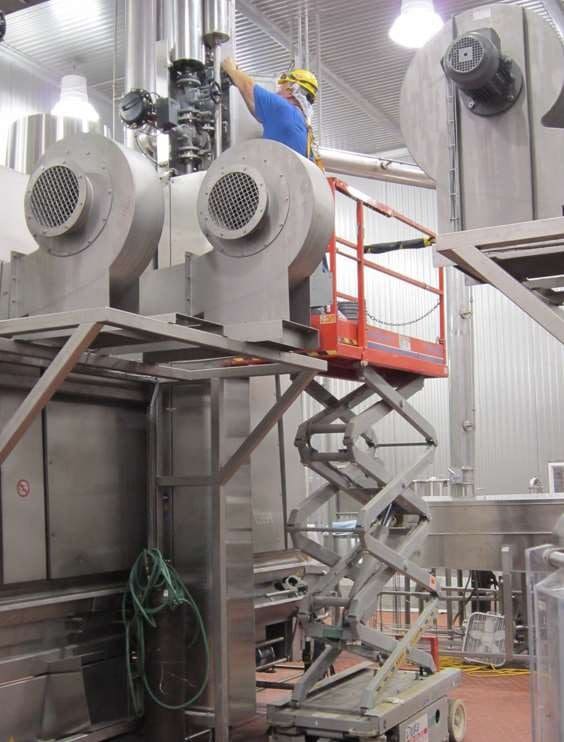

Further reading
Life of a Pre-press Equipment Field Service Engineer
A food and beverage production line equipment Field Service Engineer – meet Philip Asamoah Boamah


Responses